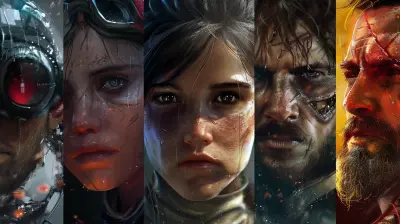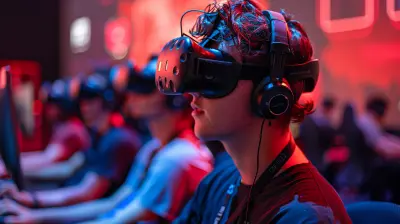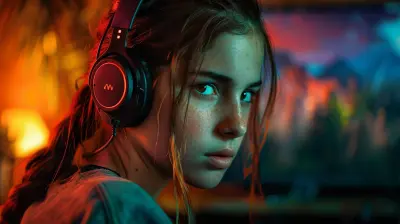How Indie Games Are Revolutionizing Gaming Narratives
23 July 2025
Let’s be real—gaming isn’t just about button-mashing, loot hunting, or headshots anymore. It’s about stories. Deep, emotional, quirky, and sometimes downright bizarre stories. And leading the charge in this narrative revolution? Indie games. Yep, those small-budget, passion-fueled projects by tiny teams (sometimes even solo devs!) are flipping the script—literally—on how stories are told in video games.
So, grab your favorite snacks, because we’re diving headfirst into why indie games are the unsung heroes of storytelling in the gaming world.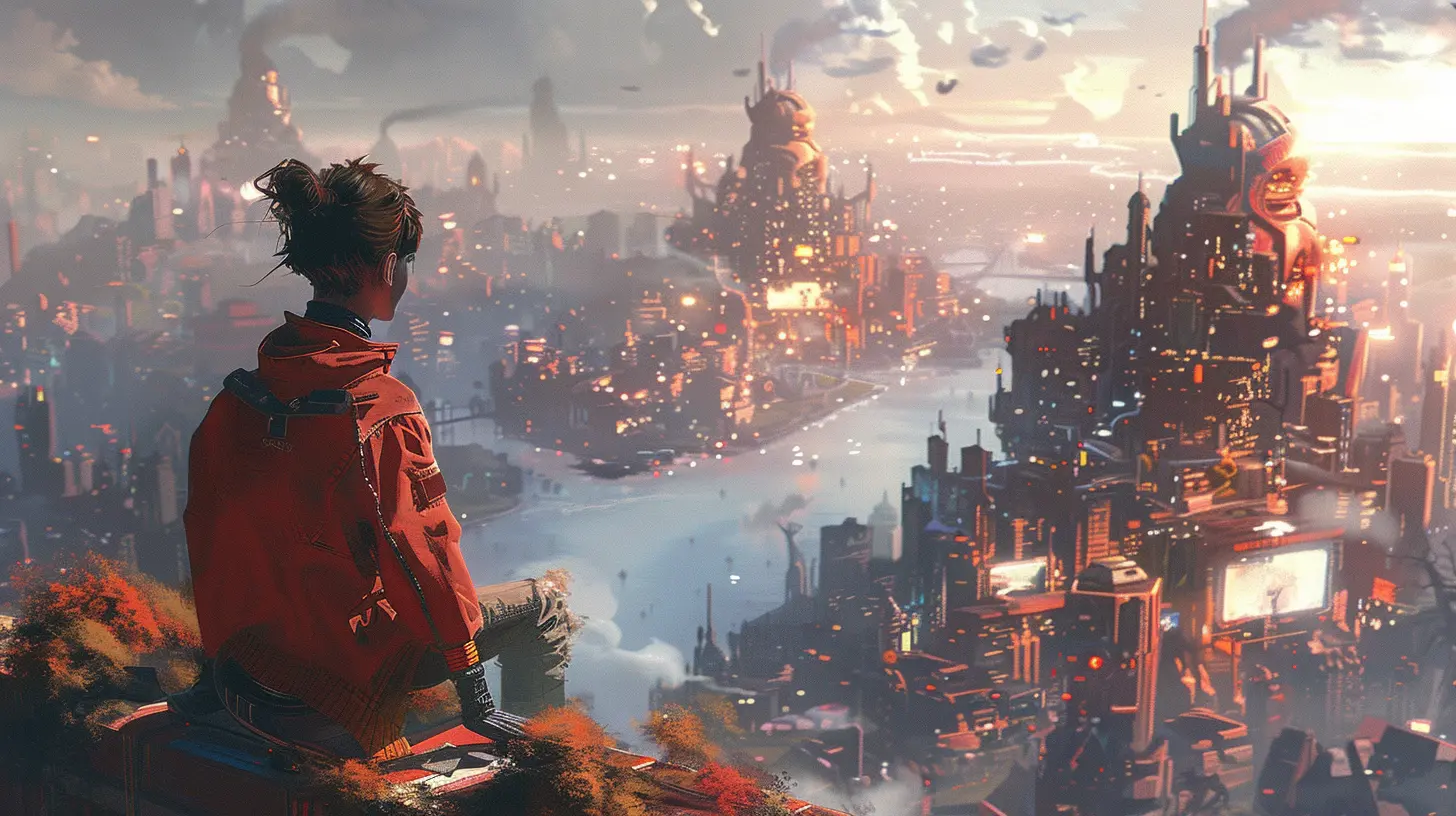
The Charm of the Underdog
Let’s start with the obvious: indie games aren’t bound by big publishers breathing down their necks. No marketing overlords demanding a new battle pass system or multiplayer mode just to "maximize engagement." Nope. Indie devs march to the beat of their own (often very weird) drums.Because of this freedom, they can take risks. They can experiment. And they can tell the kinds of stories that big-budget titles wouldn’t touch with a ten-foot pole. Think emotional rollercoasters like Celeste, deeply personal tales like Undertale, or downright surreal experiences like Kentucky Route Zero.
And you know what? That freedom translates into authenticity—and gamers are eating it up.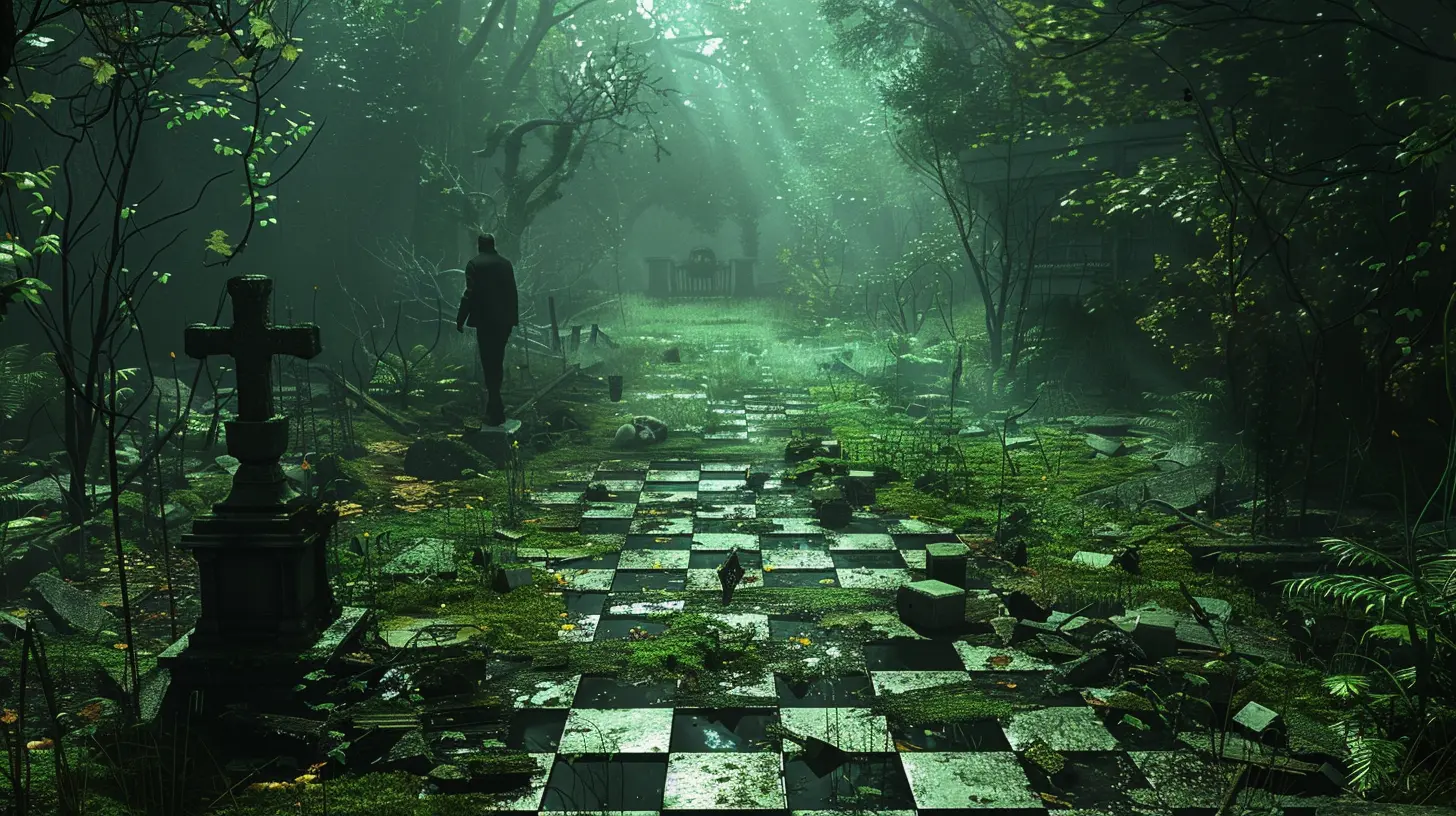
The Rise of Narrative-First Design
Remember when all video game stories seemed like Hollywood B-movies with extra explosions and questionable one-liners? Indie games are flipping that trope upside down.Many indie devs start their projects with a narrative in mind and build the gameplay around it—not the other way around. It’s no longer "let's add a story to this game about shooting aliens"; it's "let’s build a game that makes you feel what this character is going through."
Take Firewatch, for example—you're just a guy in a forest with a walkie-talkie. Yet, it's one of the most emotionally gripping games you'll ever play. Why? Because the story isn’t just a sideshow—it’s the main event.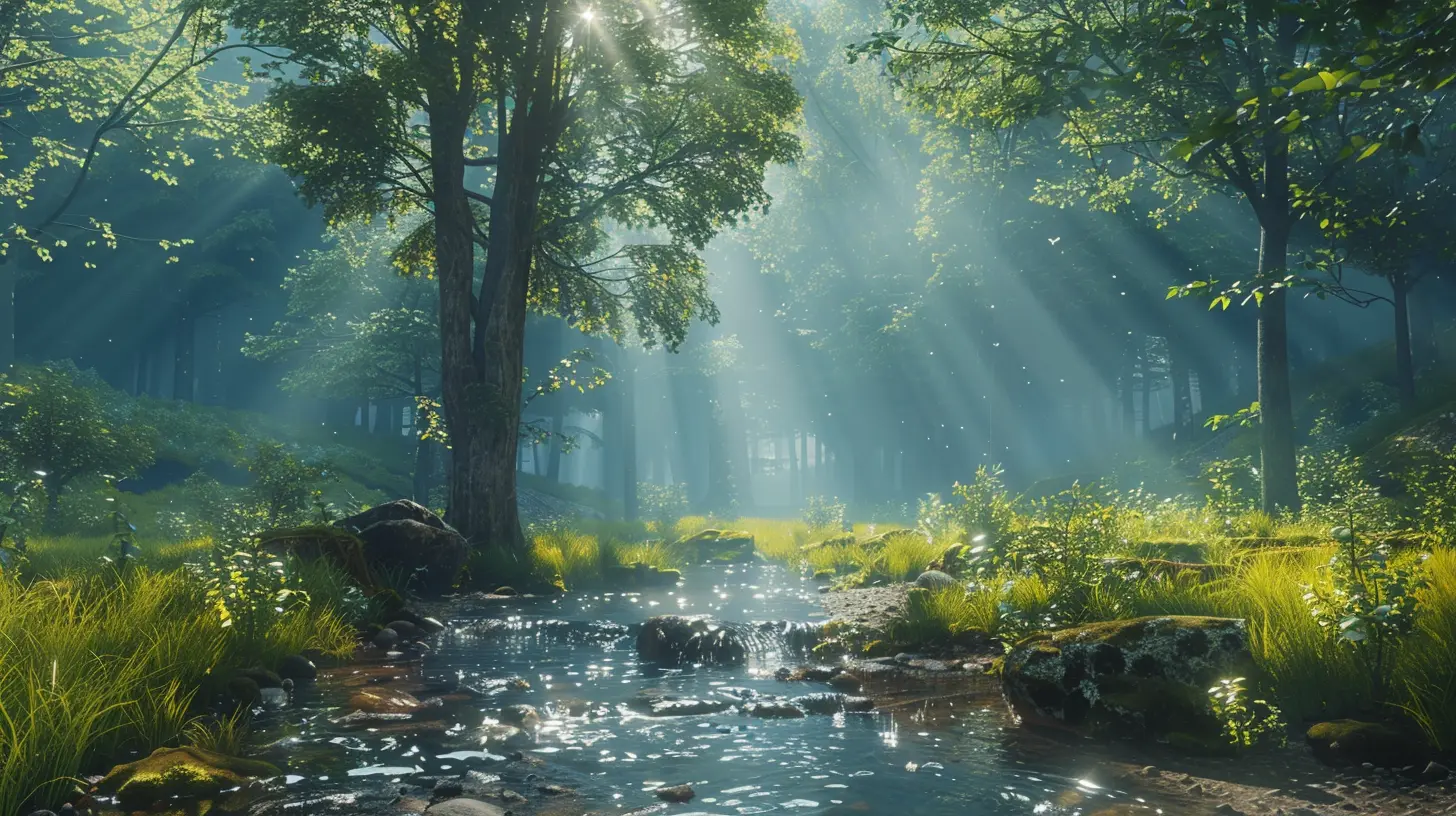
Quirky Characters with Real Personality
Here’s the thing about indie games: the characters don’t all look like Hollywood actors with impossibly thick necks and chiseled jawlines. Sometimes, they’re a literal blob of goo or a talking skeleton. And somehow, they still feel more relatable than most characters in AAA titles.Take Night in the Woods, for example. The characters are anthropomorphic animals, but the themes—mental health, growing up, dealing with failure—hit harder than a steel chair at WrestleMania.
Why does this work? Because indie devs pour their hearts and souls into these characters. They’re raw, they're flawed, and they're dripping with personality. No cookie-cutter heroes here—just genuine, memorable voices that stick in your brain for years.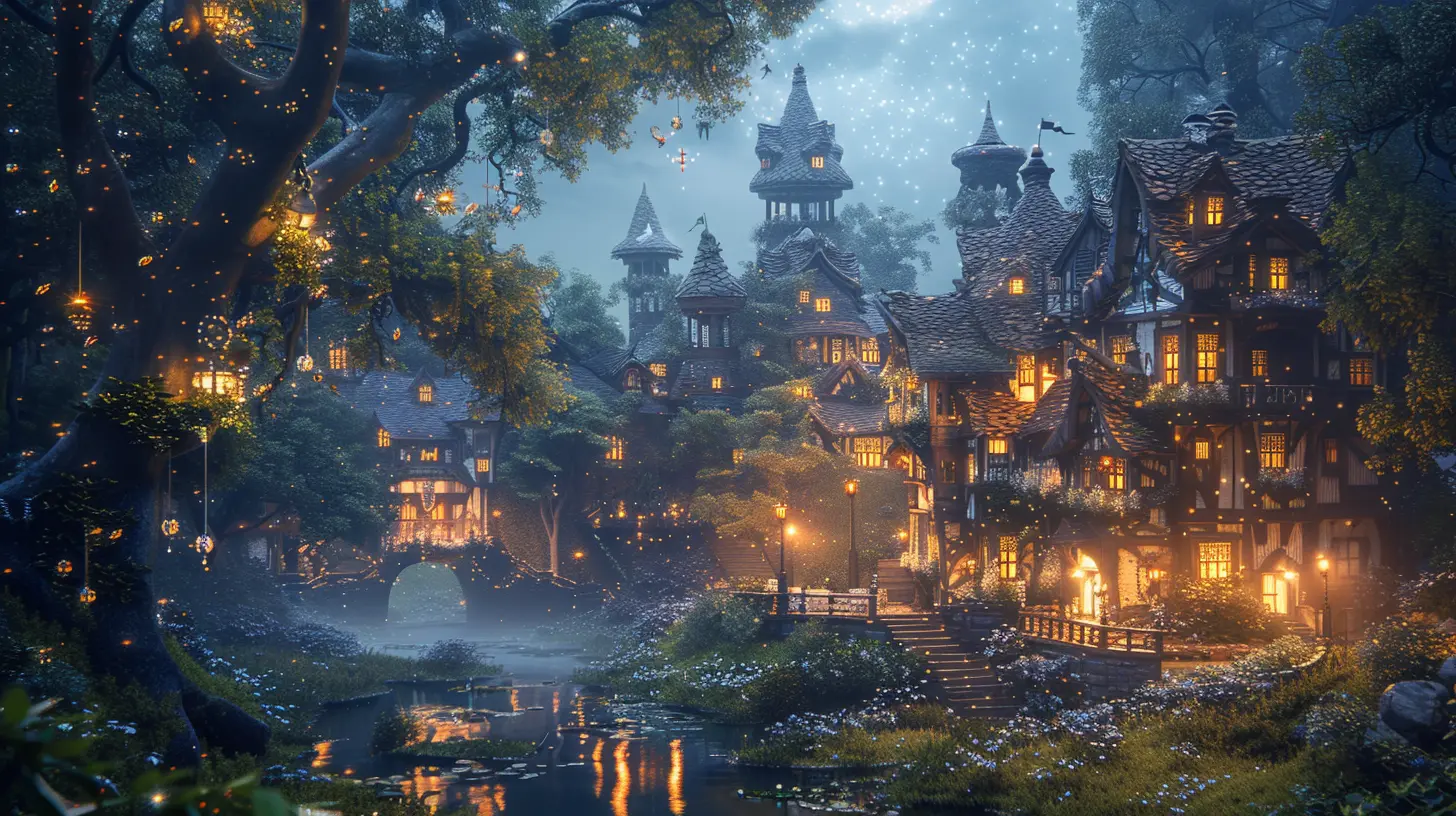
Breaking the Rules of Storytelling
Traditional games usually follow a pretty standard narrative formula: Intro, conflict, escalating tension, climax, resolution. Yawn. But indie games? They take storytelling and tie it into a pretzel.Games like Her Story throw linear storytelling out the window. You piece the story together yourself by watching video clips in any order you want. Others, like Papers, Please, make you feel the weight of every decision you make—not through big explosions, but through quiet, mundane bureaucracy.
In an indie game, you might not even be the "hero." Heck, you might not even understand what’s going on half the time. But that’s the beauty of it. The unpredictability keeps you glued to the screen.
Emotional Payloads: Indie Games and the Feels
If you’ve ever ugly-cried during a video game, chances are an indie title was involved.Big budget games often struggle to go deep emotionally—too many moving parts, too much risk, and let’s face it, investors don’t love sadness unless it’s profitable.
Indie games, on the other hand, thrive on emotion. These games don’t just want you to have fun—they want you to feel something. Grief, joy, nostalgia, confusion, existential dread... you name it.
Ever played To the Moon? It’s barely even a "game" in the traditional sense, but it will hit you square in the feels like a ton of nostalgic bricks. That’s the magic indie devs are churning out daily.
Diversity in Voices, Diversity in Stories
One of the coolest things about the indie scene is that you’re not just hearing from the same handful of white male protagonists anymore. Indie devs come from all over the world, from all backgrounds, cultures, and walks of life.That means more diverse stories. Games like A Short Hike, If Found…, Gris, and Before Your Eyes aren’t just unique in style—they’re powered by perspectives that are often missing in mainstream gaming.
It’s storytelling without a filter. And that rawness is something the gaming community desperately needed.
A Playground for Innovation
Here’s the secret sauce: Indie games are where innovation happens. They’re the wild west of the gaming world—laws optional, creativity mandatory.Want to tell a story entirely through environmental clues with no dialogue? Done. Want your main character to die permanently if you mess up? Go for it. Want to play as a blind girl navigating a world through sound (Beyond Eyes, anyone)? Why the heck not?
These games aren’t afraid to be weird, emotional, slow, uncomfortable, or completely silent. In fact, those quirks are usually what make them unforgettable.
Indie Devs Have Skin in the Game—Literally
Imagine spending years of your life, countless sleepless nights, and your own savings just to tell a story you care about. That’s the reality for many indie developers. These aren’t passion projects—they’re passion manifestations.Because of that, the stories feel personal. They’re not just made to hit quarterly targets—they’re made to resonate. That intimacy bleeds into the final product, and you can feel it every time you boot up a great indie game.
It’s like getting a handwritten letter in a world full of spam emails. You just know it means more.
The Community Factor
Unlike AAA studios that operate like secret government agencies, indie devs are out there mingling with their players on Twitter (sorry, X), Reddit, and Discord. They listen, they respond, and sometimes, they even alter the game’s story based on community feedback.This back-and-forth creates a sense of collaboration. Players become part of the storytelling process. It’s like you’re both holding the pen, crafting this wild, weird, emotional narrative together.
Indie Success Stories: Proof Is in the Pixels
Wanna see how real the narrative revolution is? Just look at the heavy-hitters:- Undertale – Subverted every expectation you had of an RPG. Who knew a game with a "mercy" button would change how we view combat and morality?
- Hades – A roguelike with such rich character development and dialogue, you forget you’re dying every 10 minutes.
- Disco Elysium – A detective RPG that turns introspection into gameplay. Yeah, your mind has stats. Welcome to intellectual warfare.
- Slay the Princess – A visual novel with horror vibes and branching narratives that makes you question everything.
These aren’t just good indie games—they’re milestones in narrative design.
Wrapping It Up: The New Storytelling Frontier
So, here we are, living in a golden age where the best stories in gaming aren’t coming from blockbuster franchises but from tiny, tight-knit teams who believe in the power of unconventional narratives.Indie games aren’t just dabbling in storytelling—they’re redrawing the map. They’re showing us that games can be more than entertainment—they can be art, therapy, social commentary, emotional release, and a good ol’ out-of-body experience.
If you haven't jumped into the indie trenches yet, you're seriously missing out. These games are changing the way we feel, think, and play—and they’re just getting started.
So the next time someone says, “Indie games are cute but not for me,” smile politely... and make them play Outer Wilds.
Then watch their world change.
all images in this post were generated using AI tools
Category:
Gaming CultureAuthor:

Tayla Warner
Discussion
rate this article
2 comments
Gemma Moses
This article beautifully captures the essence of indie games as powerful storytellers. It's refreshing to see how these small studios challenge traditional narratives, fostering creativity and innovation. Their unique perspectives not only elevate the gaming experience but also invite players to engage with deeper themes and emotions. A must-read!
October 25, 2025 at 5:10 PM

Tayla Warner
Thank you for your kind words! I'm glad you resonated with the article and appreciate the unique storytelling in indie games.
Mia Foster
Indie games are pushing creative boundaries, offering unique narratives that challenge traditional storytelling and engage diverse player experiences.
August 1, 2025 at 2:29 AM

Tayla Warner
Absolutely! Indie games are indeed redefining storytelling in gaming, providing innovative narratives that resonate with a wide range of players and challenge conventional norms.
